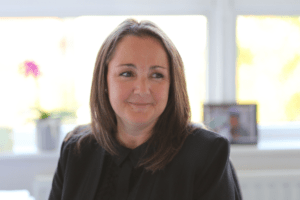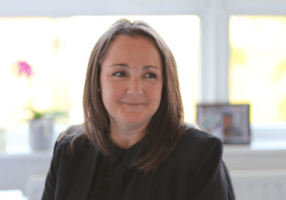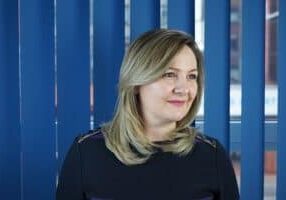Family & Divorce Law
What is the express financial remedy pilot?
From April 2025, the express financial remedy pilot will be introduced. It aims to reduce the time taken to resolve contested financial remedy cases where the parties’ total combined net assets are estimated to be £250,000 or less, by introducing a two-hearing process, rather than the standard three-hearing process, to resolve these cases.
Total combined ‘net assets’ means the combined value of your and the respondent’s assets after the deduction of liabilities and mortgages. It excludes your and the respondent’s pension rights or Pension Protection Fund compensation entitlement.
Your case will automatically enter the pilot once you send your form A to your local family court, if it meets all three requirements below:
- You and the respondent’s total combined net assets are estimated to be £250,000 or less, to the best of your knowledge
- Your application is sent from 7 April 2025 to 3 April 2026
- Your case has been allocated to any of the financial remedy courts listed below which are taking part in the pilot:
Cheshire and Merseyside financial remedy court zone:
- Birkenhead
- Chester
- Crewe
- Liverpool
- St Helens
Cleveland, Newcastle and Durham financial remedy court zone:
- Darlington
- Durham
- Gateshead
- Middlesbrough
- Newcastle Upon Tyne
- North Shields
- South Shields
- Sunderland
Greater Manchester financial remedy court zone:
- Manchester
- Wigan
Lancashire and Cumbria financial remedy court zone:
- Barrow in Furness
- Blackburn
- Blackpool
- Carlisle
- Lancaster
- Leyland
- Preston
- Reedley
- West Cumbria
North and West Yorkshire financial remedy court zone:
- Bradford
- Harrogate
- Huddersfield
- Leeds
- Scarborough
- Skipton
- Wakefield
- York
West Midlands financial remedy court zone:
- Birmingham
What you will need to do
- When you complete Form A, you will need to respond to the question at the top of page 2 of the form by ticking the appropriate answer (either ‘yes’ or ‘no’). Your answer will determine if your case is eligible for the express financial remedy pilot.
- Once your application has been issued and listed for a hearing, the court will send you and the respondent a notice of the first hearing in Form C. The first hearing will be a Financial Dispute Resolution hearing (FDR).
- Form C will tell you both when and where your FDR will take place.
- Form C will also give you instructions to follow, which you must comply with, about what you need to do and send to the court in advance of the FDR.
- The FDR hearing will take place between 16 to 20 weeks after Form A is issued. The hearing itself will last approximately one hour, but you will both need to be available at court for the full day.
What to expect at your first hearing
- In an FDR, the judge will review the documents you and the respondent have filed and encourage you both to reach an agreement. The judge will also give you and the respondent an indication of the likely outcome of the case.
What happens if you and the respondent reach an agreement at the FDR:
- If you and the respondent agree a financial settlement during this hearing, the judge will make a record of your agreement and you will be expected to submit a consent order for the judge to approve, either at the hearing or subsequently on paper. A consent order is a type of financial order. It makes your agreement legally binding so that it can be enforced by the court if there are any issues later and it also means you and the respondent cannot make any future financial claims against each other’s finances after your marriage, or civil partnership, is ended.
- Most people will need legal advice when applying for and drafting a consent order. It is possible to do it yourself, but it is difficult to create a legal document that a judge will approve without the help of a legal professional. There are legal advisers who specialise in this area of law and will help you with drafting the consent order and applying to court to make it legally binding. You can find more information about how to find legal advice here: Find legal advice and information: Overview – GOV.UK.
- The application for a consent order costs £53. This does not include any legal fees. If you want to apply for a consent order without any legal advice, you can find more information here: https://www.gov.uk/money-property-when-relationship-ends/apply-for-consent-order.
- As you will have both agreed to a financial settlement, neither of you will need to attend a Final Hearing (the next and final court hearing in the express financial remedy pilot) as the dispute has been resolved.
What happens if you and the respondent do not reach an agreement in the FDR:
- The court will list your case for a Final Hearing. The judge will give you and the respondent guidance to help you both prepare for the Final Hearing.
What you need to do between the FDR and the Final Hearing
- You and the respondent will need to draft and exchange open proposals for settlement no later than 7 days after the FDR.
- An open proposal is a document that should be drafted clearly and concisely to tell the judge what financial settlement you are prepared to agree with the respondent.
- If you would like to seek legal advice you can find more information about how to find legal advice here: Find legal advice and information: Going to court – GOV.UK.
- The judge may direct you to provide more information in your open proposal in advance of your Final Hearing or give you other directions (instructions) in an order that you must follow.
What to expect at the Final Hearing
Duration:
- The Final Hearing will take place between 26 to 30 weeks after Form A is issued. It will typically last 1 day.
What will happen at the Final Hearing:
- At the Final Hearing, the judge will decide the outcome of your financial application and make a final order. The order is a legal document that confirms the court’s decision.
What happens if your case is no longer suitable for the express financial remedy pilot
- If, after the Court have issued your Form A, either you or the respondent consider that your case should not be part of the pilot, you can apply to leave the express financial remedy pilot by completing Form D11.
- If the court agrees that your case is no longer suitable for the express financial remedy pilot, the court will then remove your case from the pilot and send you a revised timetable for your case, including a revised date for a first hearing.
Mullis & Peake LLP Solicitors is not responsible for any external links.
















Jenny Waite, Paralegal in the Family team, said:
“Although the express financial remedy pilot has not currently been rolled out in the London and Essex area yet, it is hoped that this will give parties with straightforward lower value assets a more streamlined, cost effective and timely experience in the court process to deal with financial remedy proceedings. If it proves that the pilot works well then it may be that this will be introduced across the country.”
For more information about contested financial remedy cases or to speak to a member of our Family team, you can contact us on 01708 748000.